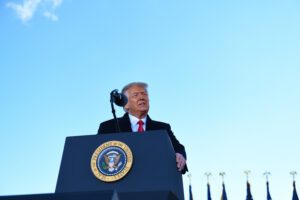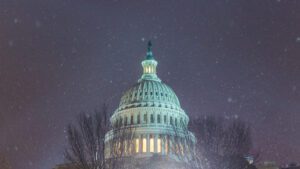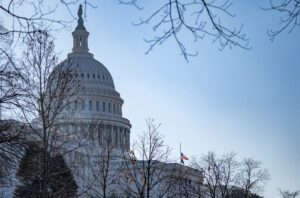The economic crisis caused by the coronavirus pandemic poses a triple challenge for tax policy in the United States. Lawmakers are tasked with crafting a policy response that will accelerate the economic recovery, reduce the mounting deficit, and protect the most vulnerable.
To assist lawmakers in navigating the challenge, and to help the American public understand the tax changes being proposed, the Tax Foundation’s Center for Federal Tax Policy modeled how 70 potential changes to the tax code would affect the U.S. economy, distribution of the tax burden, and federal revenue.
In tax policy there is an ever-present trade-off among how much revenue a tax will raise, who bears the burden of a tax, and what impact a tax will have on economic growth. Armed with the information in our new book, Options for Reforming America’s Tax Code 2.0, policymakers can debate the relative merits and trade-offs of each option to improve the tax code in a post-pandemic world.

Tariff of Abominations Redux: Trump Proposes 60% Tariff on Chinese Goods
The Trump campaign is mulling a massive tax increase on American purchases from China. If reelected, he might quintuple the tax, imposing tariffs of 60 percent on imports from China. The economic ramifications would be significant and unwelcome.
5 min read
Permanent Bipartisan Tax Deal Would Grow Economy but Create Revenue Challenges
Examining the revenue, economic, and distributional effects of a hypothetical deal with permanent tax policy changes shows the longer-run trade-offs policymakers would face.
5 min read
Details and Analysis of the Tax Relief for American Families and Workers Act of 2024
The House Ways and Means Committee has advanced a tax deal to the House floor that would temporarily—and retroactively—restore two major business deductions for cost recovery and expand the child tax credit through 2025.
10 min read
Michigan Tobacco Bills Could Reduce Revenue and Increase Smuggling
Two pieces of tobacco legislation in Michigan have the potential to decrease state tax collections by $320 million per year, deter smokers from switching to less harmful products, and increase illicit trade and crime.
4 min read
JCT Report Shows How Corporate Tax Breaks Have Expanded
Lawmakers should prioritize creating a tax system that supports investment more broadly rather than subsidizing specific industries and allowing broad, neutral pro-investment provisions to expire.
3 min read
Evaluating Nebraska Governor’s Plan for Property Tax Relief
Nebraskans need property tax relief and there are sound ways to provide it. However, increasing the sales tax rate to the highest in the country and dramatically increasing cigarette excises is not sound tax policy.
5 min read
D.C. Tax Revision Commission Recommends Major Tax Changes
While some recommendations follow the principles of sound tax policy and may improve the District’s tax climate, some proposals make the tax code more complex and less neutral, potentially disincentivizing investment and business activity.
6 min read
Don’t Ignore the Long Run When Evaluating Corporate Tax Cuts
Do corporate tax cuts boost workers’ wages? The answer depends on your time frame.
4 min read
Tax Files under New Council of EU Presidency: Belgium
In such a determinant semester for Europe, principled tax policy can be an important tool for a more competitive European Union.
5 min read
Which Provisions of the Tax Cuts and Jobs Act Should Be Made Permanent?
Lawmakers should use the year ahead to thoroughly review and debate lasting, fundamental tax reform and prioritize policies that best boost work and investment incentives in a fiscally responsible manner.
4 min read